| Different
Types of Therapies
Qualified personnel are assigned by KinderKare and
can include:
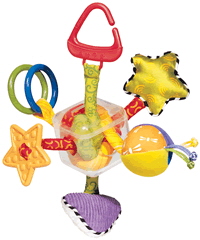  SPEECH LANGUAGE PATHOLOGISTS
have advanced Masters degrees and can assist a child with
pathological conditions such as choking, drooling, feeding
issues, cleft palate, and nasogastric feeding tubes. They
can assist children who have language delays. Language
delays may include both receptive (what your child understands)
and expressive (what your child can say or express) ability.
SPEECH LANGUAGE PATHOLOGISTS
have advanced Masters degrees and can assist a child with
pathological conditions such as choking, drooling, feeding
issues, cleft palate, and nasogastric feeding tubes. They
can assist children who have language delays. Language
delays may include both receptive (what your child understands)
and expressive (what your child can say or express) ability.
 go
back to our main services page
go
back to our main services page
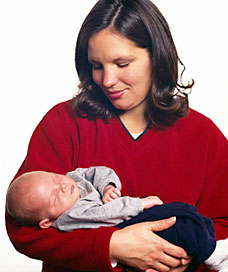  SPEECH TEACHERS
are also known as teachers of speech and the hearing handicapped.
These professionals have a Bachelors Degree from an accredited
four-year university, and specialize in helping your child
overcome language delays.
SPEECH TEACHERS
are also known as teachers of speech and the hearing handicapped.
These professionals have a Bachelors Degree from an accredited
four-year university, and specialize in helping your child
overcome language delays.
 go
back to our main services page
go
back to our main services page
  PHYSICAL THERAPISTS
provide services that promote function to the muscle,
nerve, and bone systems of the body via manual techniques,
and utilize equipment such as physioballs to facilitate
age appropriate gross motor function such as sitting,
crawling, standing, walking, running, climbing, catching
and throwing a ball, and ascending/descending stairs.
PHYSICAL THERAPISTS
provide services that promote function to the muscle,
nerve, and bone systems of the body via manual techniques,
and utilize equipment such as physioballs to facilitate
age appropriate gross motor function such as sitting,
crawling, standing, walking, running, climbing, catching
and throwing a ball, and ascending/descending stairs.
 go
back to our main services page
go
back to our main services page
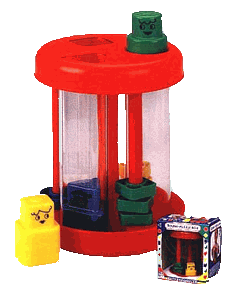  SOCIAL WORK services
include home visits to evaluate living conditions and
parent-child interaction; assessing the child's psychosocial
development within the family context; counseling family
members; and providing social skill-building activities.
Finally, social workers focus on addressing problems and
identifying, mobilizing, and coordinating resources and
services so that the child/family receive maximum benefit
from early intervention services.
SOCIAL WORK services
include home visits to evaluate living conditions and
parent-child interaction; assessing the child's psychosocial
development within the family context; counseling family
members; and providing social skill-building activities.
Finally, social workers focus on addressing problems and
identifying, mobilizing, and coordinating resources and
services so that the child/family receive maximum benefit
from early intervention services.
 go
back to our main services page
go
back to our main services page
  OCCUPATIONAL THERAPISTS
address a child’s ability to independently perform
adaptive skills, meaning self-help activities of daily
living, such as feeding with a spoon or taking off socks
They also address sensory issues, for example if a child
is overly sensitive to certain textures or dislikes being
touched. Occupational therapy also addresses fine motor
skills involving hand activities such as picking up a
Cheerio, drawing, closing a button and opening a zipper.
OCCUPATIONAL THERAPISTS
address a child’s ability to independently perform
adaptive skills, meaning self-help activities of daily
living, such as feeding with a spoon or taking off socks
They also address sensory issues, for example if a child
is overly sensitive to certain textures or dislikes being
touched. Occupational therapy also addresses fine motor
skills involving hand activities such as picking up a
Cheerio, drawing, closing a button and opening a zipper.
 go
back to our main services page
go
back to our main services page
  NUTRITIONISTS assess
nutritional history, dietary intake, anthropometric, biochemical,
and clinical variables, feeding skills/problems, and food
habits/preferences; developing and monitoring plans to
address nutritional needs; and making referrals to community
resources to meet nutrition goals.
NUTRITIONISTS assess
nutritional history, dietary intake, anthropometric, biochemical,
and clinical variables, feeding skills/problems, and food
habits/preferences; developing and monitoring plans to
address nutritional needs; and making referrals to community
resources to meet nutrition goals.
 go
back to our main services page
go
back to our main services page
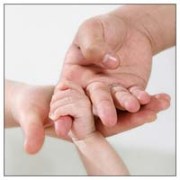  SPECIAL EDUCATORS
are also known as special instructors and educational
therapists enhance the skill development of a child by
designing appropriate learning environments and activities
to address their cognitive and social emotional development.
SPECIAL EDUCATORS
are also known as special instructors and educational
therapists enhance the skill development of a child by
designing appropriate learning environments and activities
to address their cognitive and social emotional development.
 go
back to our main services page
go
back to our main services page
  VISION THERAPISTS
provide treatment for many common visual problems such
as lazy eye, crossed eyes, double vision, convergence
insufficiency and some reading and learning disabilities,
utilizing eye exercises. For many patients who have learning
disabilities, vision therapy helps address the visual
problems that interfere with reading, learning and educational
instruction.
VISION THERAPISTS
provide treatment for many common visual problems such
as lazy eye, crossed eyes, double vision, convergence
insufficiency and some reading and learning disabilities,
utilizing eye exercises. For many patients who have learning
disabilities, vision therapy helps address the visual
problems that interfere with reading, learning and educational
instruction.
 go
back to our main services page
go
back to our main services page
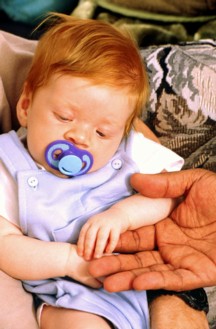  PSYCHOLOGISTS include
administering and interpreting psychological and developmental
tests and other assessments; obtaining, integrating, and
interpreting information about child behavior and child/family
conditions related to learning, mental health, and development;
and planning and managing a program of psychology services.
PSYCHOLOGISTS include
administering and interpreting psychological and developmental
tests and other assessments; obtaining, integrating, and
interpreting information about child behavior and child/family
conditions related to learning, mental health, and development;
and planning and managing a program of psychology services.
 go
back to our main services page
go
back to our main services page
THIS AREA
INTENTIONALLY
LEFT BLANK
|